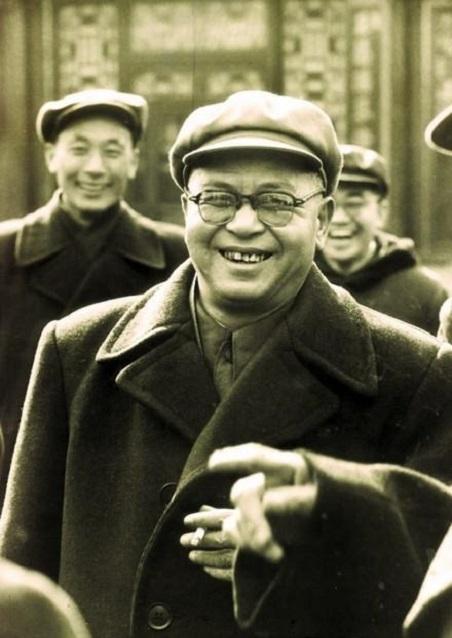
In 1962 I was studying in Beijing. At that time, I loved to read the articles of the famous historian Comrade Wu Han and admired the author very much. On the afternoon of June 26 of this year, we were pleased to hear a very good report from Comrade Wu Han at the Concert Hall of the Radio Building. Seventeen years have passed, but the insight of Comrade Wu Han's learned man and his teachings of ardent concern for the young generation still seem to reverberate in the ears and haunt the mind, making people feel so kind, so fresh, giving people a strong enlightenment and great strength.
In his report, Comrade Wu Han said that some young people wrote to him and asked him why he had such a great knowledge. He replied that if you want to learn a lot, you must read more, copy more, and write more. Other than that, there is no secret. While talking about reading more books, he also put special emphasis on reading books to be excerpted and cards. He said that more than thirty years ago, when he was studying in the history department of Tsinghua University, he loved to read and often took notes. Whenever valuable information is found, feel free to copy it in a notebook. Later, I remembered more, and found that there was a problem, that is, this kind of excerpt method was unclear and messy, and when it came to using the data, it took a lot of effort to find it, and it was a waste of time. What to do? Having learned my lesson, I switched to cards. I often carry some small cards around me, and when I encounter information, I can copy it on the card at any time.
Speaking of this, Comrade Wu Han casually held up a rectangular cardboard card for everyone to watch. I remember the card being twice as big as a single poker. He said that it was such cards that, for decades, when he read books, newspapers and magazines, he excerpted any material that he thought was valuable. Each card is written down only one thing, one paragraph, and a page taken from a book. In this way, the more it is remembered over time, it is classified and preserved according to the content and nature. For thirty years, every year, every day. Comrade Wu Han said: We must remember that if a person wants to make achievements in his studies, he must persist in doing this card excerpt in order to discover valuable information, and he must accurately extract it as if he had obtained the most precious treasure.
Genius is hard work, knowledge is accumulation. In this way, the card excerpt accumulates more, and the work is natural, and you can perform inductive classification, analysis and research, and comprehensive utilization on the basis of a large number of materials to create your own works. For example, if you yourself have collected excerpts from a certain historical figure, dozens or hundreds of them will accumulate on the card for that person. In this way, if you study one by one, choose their own advantages, and combine the strengths of all the families into one, you will put forward your own unique and superb insights; the articles you write will come from a hundred hundred articles, and it will be higher than a hundred hundred articles, and good products will not come out!
Reading is learning, excerpting is organizing, and writing is creation. For example, on the evaluation of Cao Cao, many people in history said that he was bad, and Tang Taizong said that Cao Cao was good. In the end, how can we objectively and correctly evaluate Cao Cao? It is not possible without extensive and profound knowledge. Only when we read a wide range of books, are familiar with ancient and modern times, and have copied and analyzed and studied the evaluations of Cao Cao by many people in ancient and modern times, can we write superb treatises on Cao Cao's problems.
Comrade Wu Han then encouraged everyone: You are all young people with great ambitions and have a bright future. You know, everyone can become an expert and a scholar, and the key lies in their own efforts. As long as you study hard, persevere, and be diligent in your eyes, hands, and brains in your studies, you can become a learned person. All experts and scholars have gone through this process.
Comrade Wu Han's report has strongly attracted the young people present and aroused great interest from everyone. The whole hall was very quiet, and the people listened intently, nervously taking notes, lest they miss a word.
At the end of the report, there was a long-lasting applause throughout the venue, but people reluctantly refused to leave their seats. The comrade presiding over the meeting seemed to have seen through everyone's thoughts and announced that if you have any questions, you can write a note to raise them and ask Comrade Wu Han to give you answers and guidance. As a result, one note after another passed into the hands of Comrade Wu Han. Comrade Wu Han picked up a note and read: If you have this book, then, should the information in it be copied to the card again? Comrade Wu Han replied loudly and clearly: If you want to copy, you must copy the same! He went on to say: If you want to talk about books, I'm afraid I have more books than any of you, but I still insist on taking notes and excerpts.
(Text/Niu Shouxian, Ma Xiushan, from China Youth Magazine, 1979)
Related Links: Cards are stationery that history students have been exposed to in their first college class, and are now hard to find. I remember my world history teacher usually took a few cards to class. In the summer, the other hand shakes the fan (professor of Hainan Normal University, Doctor of History).